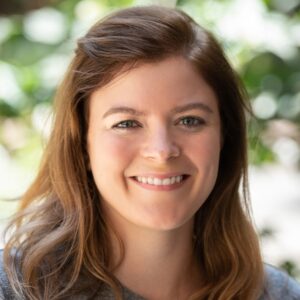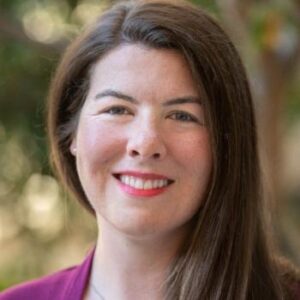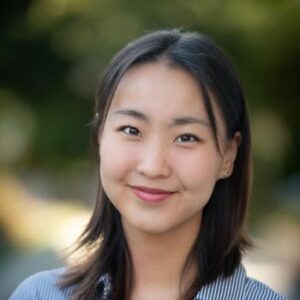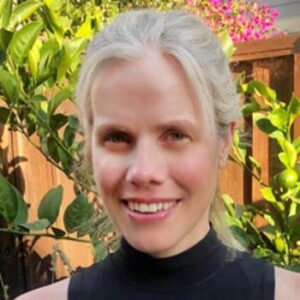Presented by: Julie Wu, MD, Medical Oncologist, VA Palo Alto Healthcare System and VA National Oncology Program.
Talk Title: “EHR Analytics with GenAI: a Nationwide Case Study of the Longstanding Smoking History Problem”
Bio: Julie Wu is a medical oncologist at the VA Palo Alto Healthcare System and with the VA National Oncology Program. Julie’s research interests are in generative AI for large-scale EHR analytics, lung cancer screening and second primary lung cancer, and precision oncology.
Anyone can attend and happy hour conditions apply here too.
For inquiries regarding full location and Zoom detail instructions, please contact Ana Mezynski <mezynski@stanford.edu>
Presented by: Katherine Arnow, MS, Senior Biostatistician, S-SPIRE Center, Department of Surgery, Stanford University
Each week, S-SPIRE hosts a hybrid-model Work-In-Progress session (WIP) for faculty members and trainees to present their research and receive feedback. These run from September through May each year.
Our monthly WIP sessions (first Monday of every month) features Stanford and guest faculty presentations of well-developed projects. This WIP provides an opportunity to discuss high impact research and create synergy within the Stanford HSR/Surgery communities.
Our weekly WIP sessions feature trainees and faculty projects in every phase of development—from drafting specific aims pages, to parsing grant review committee comments, to abstracts/papers/methods in preparation.
Anyone can attend and happy hour conditions apply here too.
For inquiries, please contact Ana Mezynski <mezynski@stanford.edu>
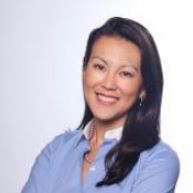
Presented by: Stephanie Chao, MD, Assistant Professor of Surgery, Pediatric Surgery, Stanford University.
Bio: Dr. Stephanie Chao, MD is a general surgery specialist in Stanford, CA. She is affiliated with medical facilities Good Samaritan Hospital and Lucile Packard Children’s Hospital Stanford.
SAGES 2025 Annual Meeting Emerging Technology Abstract Submission Information
SAGES 2025 Annual Meeting
March 12-15, 2025
Long Beach, CA, USA
THE CALL FOR ABSTRACTS FOR THE SAGES 2025 EMERGING TECHNOLOGY SESSION WILL OPEN OCTOBER 2024
THE CALL FOR ABSTRACTS FOR THE SAGES 2025 SCIENTIFIC SESSION
CAN BE FOUND HERE
You are invited to submit papers to The Emerging Technology Session of the SAGES 2025 Annual Meeting. The meeting will be held March 12-15, 2025 in Long Beach, CA, USA.
This session is open to submissions from physicians / industry engineers / scientists / researchers. It should be used for reporting on cutting edge or emerging technologies for which formal experimental data may not yet be available. Developers and inventors are encouraged to present their own work.
IF YOU ARE PLANNING TO SUBMIT OR DISCUSS ANY IDEAS OR INVENTIONS, before you submit or discuss them, please keep in mind that discussing or displaying them at this meeting may be considered a public disclosure of the idea or invention, which can negatively affect your right to protect that idea or invention. You may also have duties to your employer relating to that idea or invention, and should discuss the impact of a disclosure with the proper representatives of your employer before you submit or discuss it.
The Emerging Technology Abstract submissions will open October 1, 2024 and will be accepted until November 20, 2024 and will undergo an expedited review process. This session is appropriate for technologies that may still be under development. Since the Emerging Technology Session will not include CME credit, topics are not limited to formal studies or experiments but may include description based abstracts or very preliminary results. Presentations will be 5 to 10 minutes in length. Accepted abstracts will be published in the official SAGES Final Program.
Submissions should follow the following format:
- Objective of the technology or device
- Description of the technology and method of its use or application
- Preliminary results if available
- Conclusions / future directions
- 500-word limit
Presented by: Laura Graham, PhD, Health Services Researcher, Department of Surgery, Stanford University
Talk Title: “An Updated Primer to VA Data (2024)”
Bio: Dr. Graham is a health services researcher with extensive experience in data management and analysis, particularly focusing on surgical outcomes research using large administrative datasets from the Veterans Health Administration (VA) and other single site healthcare systems. Her research interests include improving the processes of clinical care using causal inference methodologies and implementation science to translate evidence into practice. Her research has significantly contributed to understanding and improving surgical outcomes, particularly within the VA healthcare system, through rigorous epidemiological and health services research methods.
Anyone can attend and happy hour conditions apply here too.
For inquiries, please contact Ana Mezynski <mezynski@stanford.edu>
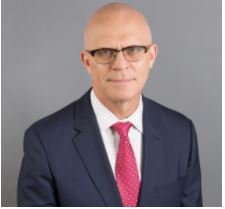
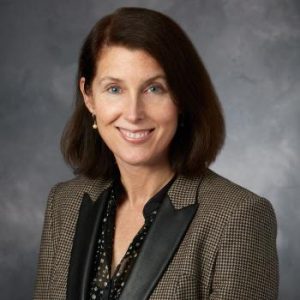
Presented by: Dr. David Spain & Dr. Arden Morris
Bio: Dr. David A. Spain is the David L. Gregg, MD Professor and Chief of Acute Care Surgery. His clinical areas of specialty are emergency and elective general surgery, trauma and critical care. His research focus is assessment of clinical care, systems of care and assessment of stress response and PTSD after trauma. He is the current President of the American Association for the Surgery of Trauma. He is a Councilor of the American Board of Surgery and Director of the Surgical Critical Care board. He is the editor of the textbook Scientific American’s Critical Care of the Surgical Patient. Dr. Spain is also the General Surgery Residency Program Director at Stanford.
Bio: Arden M. Morris, MD, MPH is Professor of Surgery and Vice-Chair for Research in the Stanford Department of Surgery. She is Director of the S-SPIRE Center, a health services research collaborative to study patient-centered care, clinical optimization, and health care economics. In her own work, Dr. Morris uses quantitative and qualitative research methods to focus on quality of and equity in cancer care. She serves as vice-chair of the Commission on Cancer’s National Accreditation Program for Rectal Cancer Quality Committee, American Society of Colon and Rectal Surgeons’ representative to the American Joint Commission on Cancer, and Chair of the ACS Cancer Surgery Standards Program Implementation and Integration Committee.
Presented by:
Yewon Ashley Son, BS, Research Data Analyst, S-SPIRE Center
&
Heather Selby, PhD, Research Scientist, S-SPIRE Center, Surgery, Stanford University
Talk Title: “Using MRI, Radiomics, and AI to Predict Rectal Cancer Response: Insights from the SHORT-FOX Phase II Clinical Trial.”
Bio: Ashley Y Son, BS is a Research Data Analyst for the Stanford-Surgery Policy Improvement Research & Education Center (S-SPIRE). Ashley received her bachelor’s degree in Statistics and Data Science at the University of California, Santa Barbara.
Bio: Heather Selby is a Basic Life Research Scientist for the Stanford-Surgery Policy Improvement Research & Education Center (S-SPIRE). Heather is interested in developing medical imaging-based AI models to identify patients with locally advanced rectal cancer who achieve a clinical complete response to neoadjuvant chemoradiotherapy, with the goal of sparing them from surgery and its associated risks.
For inquiries, please contact Ana Mezynski.
Call For Abstracts
The Plastic Surgery Research Council is now accepting abstracts for their 70th Annual Meeting. Please submit your abstracts today for consideration in the 2025 Annual Scientific Program.
Submit your Abstract
Deadline: Sunday, October 6, 2024 at 11:59 PM EST
View Submission Guidelines
Accepting abstracts in the following categories:
- Aesthetic
- Breast
- Cancer
- Craniofacial
- Ethics
- Gender Affirmation Medicine/Surgery
- General Reconstruction
- Hand
- Innovation/Commercialization/Technology
- Microsurgery/Flap Physiology/Ischemia Reperfusion
- Nerve
- Patient Safety/Health Care Cost/Access to Care
- Plastic Surgery Education/Training/Leadership/Practice
- Skin/Burn/Wound Healing
- Transplant
- Vascular/Lymphatic Biology and Diseases

